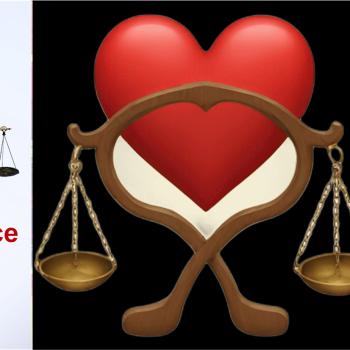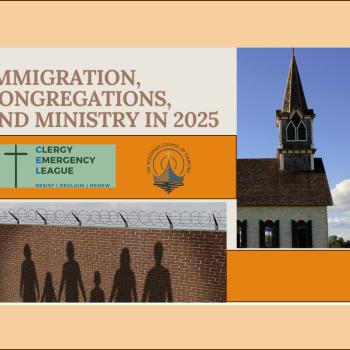On the other hand, I live on this land and reap -- every day -- the benefits of European colonization of the Americas. We stand on the shoulders of our dead. That means we also stand on the fallout, positive and negative, of their deeds. Some of those deeds (and I think this holds true for everyone's dead) were shameful. Some of those deeds caused irreparable harm to others, including their descendants. Yet, every day of my life, I benefit greatly from that shame. For most of my life I never thought about this. It wasn't until my ancestral practices deepened that I began to see the inter-relation between their lives, the lives of those they touched, and my own. Yes, there is responsibility there, if only the responsibility of acknowledging openly and truthfully what was done.
My "job" is to fix my relationship with my own dead, to repair what threads need repairing, and to remain mindful of my own actions in the future. Memory is a powerful and potent thing. I am a memory keeper, an ancestor worker; I have a responsibility to speak for the dead. All the dead, not just my own. To greater or lesser degree we all have a responsibility to speak for the dead, most especially those dead who for generations were silenced, who even now may be given no voice. The land remembers what was done here. It remembers the kindnesses and it remembers the bloodshed. At times when our collective cultural consciousness so often seeks to sweep the ugly parts of its history out of view, the land cries out for recognition. Speak and acknowledge the truth of its memory.
This Thanksgiving, I will honor my ancestral obligations of hospitality: I'll be cooking for friends and pouring out offerings to the dead. I will be opening my home in hospitality to the living and I will be lighting candles and laying out offerings of remembrance for the land and the dead of the land I now inhabit. I am a shaman and I must straddle many worlds. I must by virtue of my work learn to be a living bridge across those often conflicting spaces. I must stand in multiple worlds and hold the line of memory most especially when it is not comfortable to do so. That I sometimes do it clumsily is to my shame, not that of those for whom I speak. I believe that finding ways to do this -- and to some small degree, we can all do something even if we're not shamans -- is a way of bringing honor to our dead, all of our dead. It is a way of restoring balance and mutual respect. Our world is out of balance to a terrifying degree. We can no longer afford our comfortable cultural fables to go unexamined.
So this Thanksgiving, I urge you to take a few moments not in thinking about that mythic harvest festival meeting between the Pilgrims and the Native Americans, but in honoring our Native dead. Go outside and put your hands on the earth and weep for them. Go outside, put your hands on the earth, and thank them. Go outside and pour out offerings of good, clean water, tobacco, and cornbread (or anything you have but never, ever alcohol, which in this case is not appropriate). Always remember, that there are many people in this country, good Americans I might add, who celebrate Thanksgiving Day not as a day of thanks but as a day of mourning. Consider the reasons why.
Better yet, consider taking this day to make an offering to an organization that supports indigenous rights. Even $5 can make a difference. That's all for now; there never are any easy answers.
Suggested Places to Donate Resources:
Cultural Survival: http://www.culturalsurvival.org/
Indigenous Advocacy Service Organization: http://ihcenter.org/groups/iaso
Indigenous Land Rights Fund: http://ihcenter.org/groups/ilrf
Indigenous Peoples International: http://ihcenter.org/groups/ipi
And while you're at it, think about the people who might have no food this thanksgiving:
Stop Hunger Now: http://www.stophungernow.org/site/PageServer
Feeding America: http://feedingamerica.org/about-us.aspx





